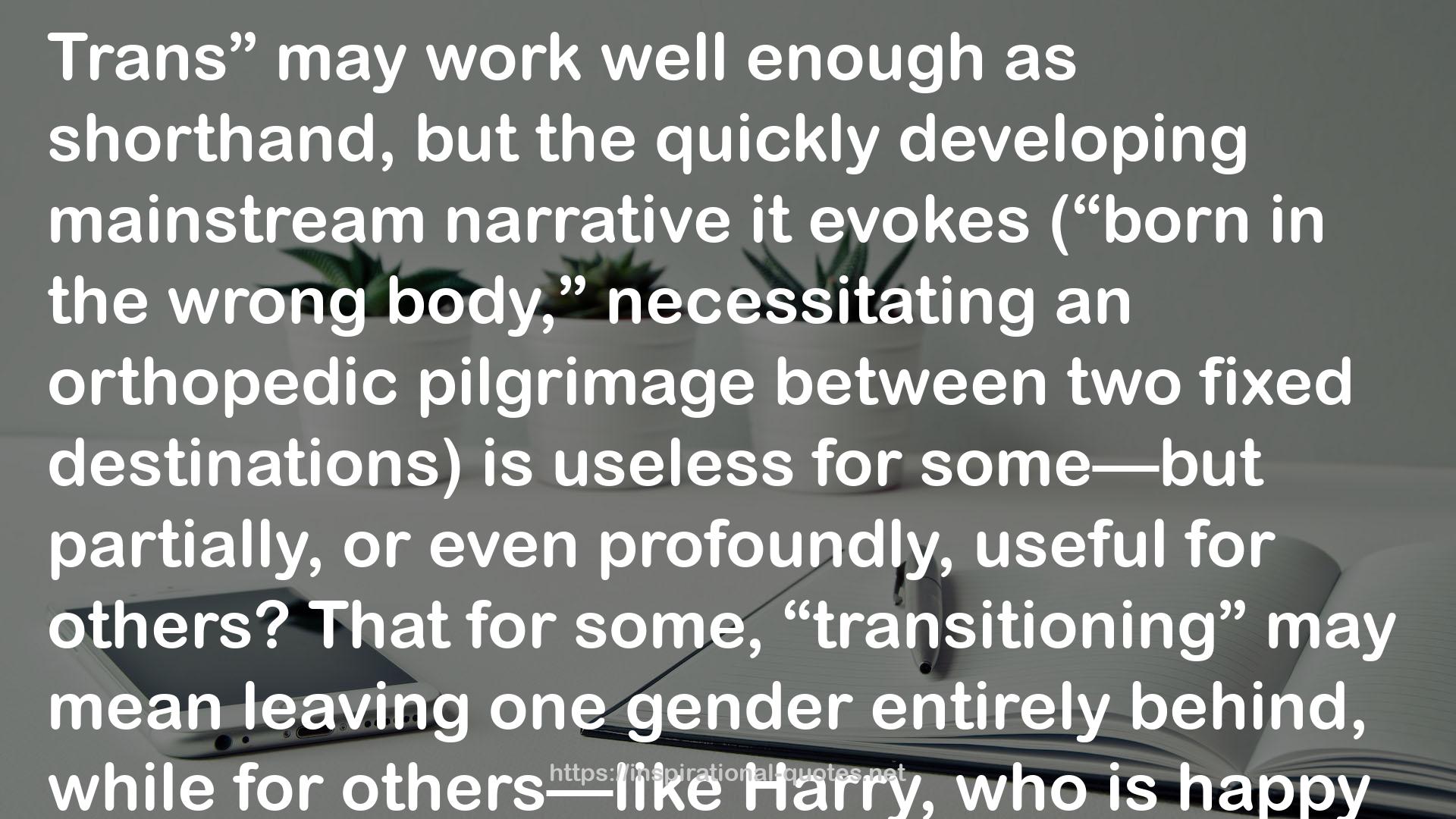" Trans” may work well enough as shorthand, but the quickly developing mainstream narrative it evokes (“born in the wrong body,” necessitating an orthopedic pilgrimage between two fixed destinations) is useless for some—but partially, or even profoundly, useful for others? That for some, “transitioning” may mean leaving one gender entirely behind, while for others—like Harry, who is happy to identify as a butch on T—it doesn’t? I’m not on my way anywhere, Harry sometimes tells inquirers. How to explain, in a culture frantic for resolution, that sometimes the shit stays messy? I do not want the female gender that has been assigned to me at birth. Neither do I want the male gender that transsexual medicine can furnish and that the state will award me if I behave in the right way. I don’t want any of it. How to explain that for some, or for some at some times, this irresolution is OK—desirable, even (e.g., “gender hackers”)—whereas for others, or for others at some times, it stays a source of conflict or grief? How does one get across the fact that the best way to find out how people feel about their gender or their sexuality—or anything else, really—is to listen to what they tell you, and to try to treat them accordingly, without shellacking over their version of reality with yours? "
― Maggie Nelson , The Argonauts
